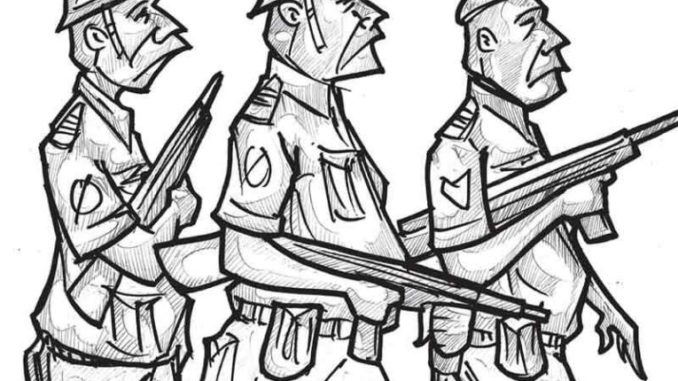
Every day, at home or in the work place, people are drawn to their newspapers, radio and television sets to get the latest information about what is happening around the world. This information comes in the form of news which, to the non-professional, simply means information about recent events or developments. Very few are interested in knowing how the journalists gather this information and present them as news to be read or listened to. Even in some cases, depending on the news item and how it affects the reader or listener, the journalists is called names. Some go on to write them off as mercenaries. In such a mood, the likelihood of evil plans against the writer is almost certain.
The United Nations General Assembly, in acknowledging this situation, adopted a Resolution at its 68th session in 2013 and proclaimed November 2 as the ‘International Day to End Impunity for Crimes against Journalists’. Available record indicate that between 2006 and 2016, that is, in a period of 10 years, 930 journalists were killed in the line of duty. The focus on impunity of this resolution stems from the worrying situation that, shockingly, nine in 10 cases of killed journalists remain unresolved which means their loved ones will never get to know what happened to them. What it also means is that whoever was responsible for the deaths got away with them.
Expectedly, male journalists account for 94 per cent of the killed journalists. Also, 93 per cent of those killed are local and only seven per cent are foreign correspondents. Television contributed 29 per cent of these killed journalists while 17 per cent worked as freelance journalists. On the average, this constitutes one death every four days. In nine out of ten cases, the killers go unpunished. These figures do not include the many more journalists who, on a daily basis, suffer from non-fatal attacks, including torture, enforced disappearances, arbitrary detention, intimidation and harassment in both conflict and non-conflict situations. Furthermore, there are specific risks faced by women journalists including sexual attacks. Significantly, it must, therefore, be understood that this record is not exhaustive as journalists, especially in developing countries, lose their lives and often there are no reliable record on such killings.
This resolution, at the time it was adopted, was epochal as it went on to condemn all attacks and violence against journalists and media workers. It also urges member states to do the needful to prevent violence against journalists and media workers, to ensure accountability, bring to justice perpetrators of crimes against journalists and media workers, and ensure that victims have access to appropriate remedies. It further calls upon States to promote a safe and enabling environment for journalists to perform their work independently and without undue interference.
The world body emphasises the point that when attacks on journalists remain unpunished, a very negative message is sent that reporting the “embarrassing truth” or “unwanted opinions” will get ordinary people in trouble. Even worse, it damages the society as it loses confidence in its own judiciary system which is meant to protect everyone from attacks on their rights. In the process, perpetrators of crimes against journalists are emboldened when they realize they can attack their targets without ever facing justice. But the truth is that the kind of news that gets “silenced” is exactly the kind that the public needs to know.
The International Day provides a strategic opportunity to all stakeholders to focus public attention on the importance of ending impunity for crimes against journalists. It also opens new possibilities to draw in constituencies whose primary interests may be other than the safety of journalists. Given the symbolic significance of journalists to the wider issue of impunity and justice, all of those who work in the rule of law system, such as people involved in legal and judicial processes, can be reached out to. Others who are concerned with public participation and citizen’s rights to speak out on various issues such as corruption or domestic violence will also share an interest in the resolution on combating impunity of attacks on journalists, who by definition are actors in the public eye, and whose situation sends a signal to society at large.
In Nigeria, since the killing of Dele Giwa through a letter bomb, which till date is unresolved, other journalists like Bagauda Kalto have lost their lives. It is in this context that this newspaper shares the opinion that impunity leads to more killings and is often a symptom of worsening conflict and the breakdown of law and judicial systems. And this worries not just the international community but also relations of journalists because of the damages whole societies suffer by covering up serious human rights abuses, corruption, and crime against journalists.
END

Be the first to comment